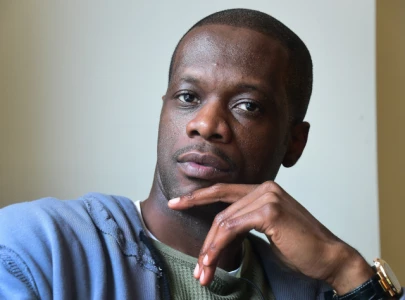In any democratic system, the courts must have the highest regard, respect, and support of the government and that of society at large. What earns them societal respect is their degree of fairness, independence, courage and the ability to stay above social and political divides. Courts and societies give energy to each other, progress together and complement each other — one provides support and the other justice.
Sadly, this is not how things have worked in our history. The courts and the society in Pakistan’s crisis-ridden political history have not worked out that relationship. They found each other on opposite sides when the Supreme Court threw its weighty justice on the side of political adventurers, usurpers and violators of the Constitution. The law of necessity and the law of popular sovereignty, which assigns power to the people, have been in natural conflict. In the past, courts have sanctified the law of necessity, giving legitimacy to usurpers and on the opposite side, the people of Pakistan have put faith in their representatives and parliament.
Being on opposite sides, the courts and society could not build a congenial relationship that could benefit both, and ultimately could have provided better safeguards for democracy, fundamental rights and civil liberties. The courts would have then equipped themselves, not only with raw legal power, but also with social power and political respect.
This did not happen until Chief Justice Iftikhar Muhammad Chaudhry stood up to General (retd) Pervez Musharraf. His conversion, from conferring legitimacy upon Musharraf by taking oath under the Provisional Constitutional Order more than six years earlier, to an independent chief justice, surprised and shocked the military ruler. Musharraf humiliated him, locked him and his family up and went on to recreate a pliant Supreme Court to support him. Look at the magical and dramatic effect of saying no to a military ruler on the public — the chief justice became a national hero, all political parties, except those sharing power with Musharraf, launched a national movement and never rested until the old judiciary was restored.
That is the only time when we saw the judiciary and the society in Pakistan united, and that raised hopes for democracy and constitutionalism. I do not wish to comment on the merit of the contempt of court case. That is the job of legal experts. The point I am trying to make is that when a court makes an unprecedented decision of convicting a prime minister for not implementing one of its orders — writing a letter to Swiss courts to open cases against President Asif Ali Zardari — which the prime minister thought was not politically possible for him to implement, it will produce political consequences for the Court and the political order.
Had we not had the history of the Court and the people having conflicting positions, perhaps the effects of the judgment against Prime Minister Yousaf Raza Gilani would not have gone beyond inflicting personal pain and a political setback for him. Now, however, we may see the political community divided along partisan lines, and the PPP mobilising its constituency on the victimhood card. This may not augur well for the Court-society relationship.
Published in The Express Tribune, May 3rd, 2012.
COMMENTS (17)
Comments are moderated and generally will be posted if they are on-topic and not abusive.
For more information, please see our Comments FAQ












Endless debate,useless and just wastage of time.
Even when apex court invokes doctrine of necessity to justify miiltary takeover doesn't it have the Public's tacit approval.we never saw public and civil society on the roads for restoration of government as we saw for restoration of CJ. society -judiciary relation may not be ideal but it seems better than society-political government relation.
@Observer:
You are now diverting the issue. We can hold elections today but how do they tell us what the public was thinking at the time of Musharraf's take over? Elections at a given time only sample public opinion at that time. And that too subject to a lot of limitations.
Secondly, I think you need a bit of education on why countries have constitutions and laws instead of just letting the majority rule with blanket powers. Cases about corruption and crimes are supposed to be decided in courts, not on the basis of public opinion or elections.
@Anticorruption
the writer makes it sound as if the public and our political leadership have been on the same page, which is hardly the case.
This business of being on the same page with the public, can only be resolved in an election. In the next election let all claimants of page space with public contest elections. All includes, Afwaaz, Adalia and DPC Patriots. If politicians win, let this question be put to rest for ever.
Game for it?
@anticorruption: You put up a brilliant argument. Hats off. Glad that we still have cool minded and rational people like yourself in our society. Rab rakha.
@Anticorruption: "As for the validation of military coups, there is little the judiciary can do to stop the military when it takes over at gun point when the public is distributing sweets rather than protesting in the streets."
The judiciary does not have to validate the military takeover. The judges are not the public; if they were then why moan about "contempt of court"? The judges in Pakistan's history not only validated but invented the basis (doctrine of necessity) for military takeovers and then without a second thought chucked their Oaths to the constitution and kowtowed to the military dictator and his PCO. Imagine if no judge had sworn under PCO; Imagine if the judges had refused to obey the military dictator; Imagine if they had been willing to go to jail for the oath they had taken!!! Instead they participated and got houses and public lands allotted to them by the military. Then they turn around and DEMAND respect?
Dear RBR. It is beginning of the end, Fake degrees, low quality of education And hiring without merit are the beauty of our society. All the fools who got degrees with hard work can be seen outside high commissions and embassies. Dear professor can you define education and training? These who are ruling are trained not educated. So, what you can expect from ill educated or poorly trained???
I don't think the public generally cares as much about the doctrine of necessity related verdicts as this piece is suggesting. The primary reason for the public's disconnect with the judiciary has been its performance in providing timely justice. As for the validation of military coups, there is little the judiciary can do to stop the military when it takes over at gun point when the public is distributing sweets rather than protesting in the streets. We need to give up this obsession with the judiciary's role in military rule and take a bit more responsibility for our own failures in protecting democracy.
As for the public and the judiciary having conflicting positions, the writer makes it sound as if the public and our political leadership have been on the same page, which is hardly the case.
By authenticating dictatorship, permitting the constitution be destroyed, inventing law of necessity, hanging a innocent prime minister,and being amenable to the politics of the day the judiciary has compromised its prestige. It will take a long time for them to regain their rightful place in the eyes of masses. many believe and believe it strongly that by refusing to move against the President the PM has only discharged his duty according to the constitution.
Why SC forgot civil society's demand to recover missing persons.
@Khalid Pathan: "The Court-Society relationship is worsening because of general perception that the Apex Court has come harder on Mr. Zardari and associates as compared to corruption cases of Mr. Nawaz shareef and associates."
It is not only PML-N that is favored by these PCO judges. How about reprimanding any judge who swore under PCO? How about calling the jihadist of the red Masjid of Islamabad for what and who they are and not awarding them public land for free? How about explaining why they went gung ho on becoming a trial court for memo gate and treating Haqqani like a criminal when he is not even charged for any crime? How about convicting some judges for corruption? How about condemning and convicting the judges and lawyer involved in ZAB's judicial murder? How about hauling in PML-N goons who attacked the supreme court? How about investigating the land mafia run by the generals? How about taking "suo moto" of the many billionaire retired generals of the army?
why is it not feasible for the PM to write the letter? makes no sense at all
The issue is our judges consider themselves the fountain of wisdom and ultimate authority on almost every thing. For last four years, it looks courts have jurisdiction for every thing.
Have you ever heard, in a civilized society, supreme court questioning the powers of parliament to amend the constitution? This only happens in our country.
Our judicial system has been hijacked by a bunch of lawyers. It is time to create a separate unconstitutional court where judges are appointed for limited time only so that there representation of society as whole.
Please write on following issue
http://tribune.com.pk/story/335672/exposing-graft-14-years-on-informant-awaits-just-reward/
Rasul Bakhsh Sahab - I agree with most of what you have said. However, tell me this. Had the court not done it, they would have been accused with not having a back bone to bring down the strong. Now that they have done it, people are accusing them. Yes, I agree that SC needs to act neutral by taking up cases from other parties as well. But the bottom line remains is that in our country, its the individuals rather than the institutions that rule. So in the interim, this judicial-society divide is inevitable because PPP will play the victim card because it works rather than the moral legitimacy of it.
Rasul Baksh Jee, We all know that politics and judiciary do not and should not entangle rather embrace each other. That is the reason that independence of judiciary is emphasized in every system of the world and in every textbook on judicial philosophy, human rights, constitutional law, and institutional democracy. Our court system particularly the apex one has not only added to the deinstitutionalization of Pakistani system rather had made the country more fragile and thus vulnerable to internal and external forces. I am sure there is a difference between between a Thanna Muhrar and the Chief Justice of the apex court as is the difference between institutional democracy and populist mobocracy. When you thin that wall, it obviously is not going to sustain.